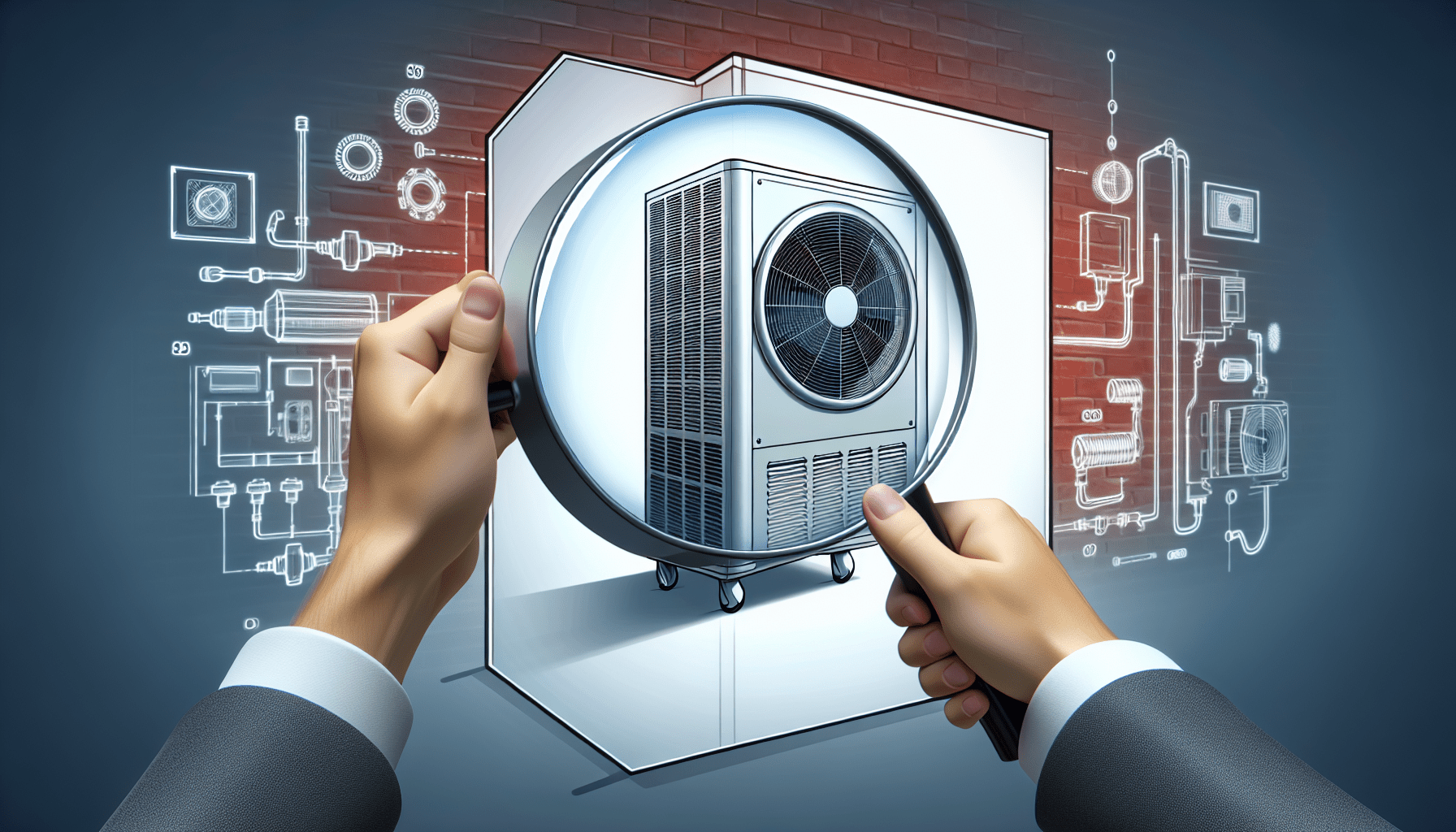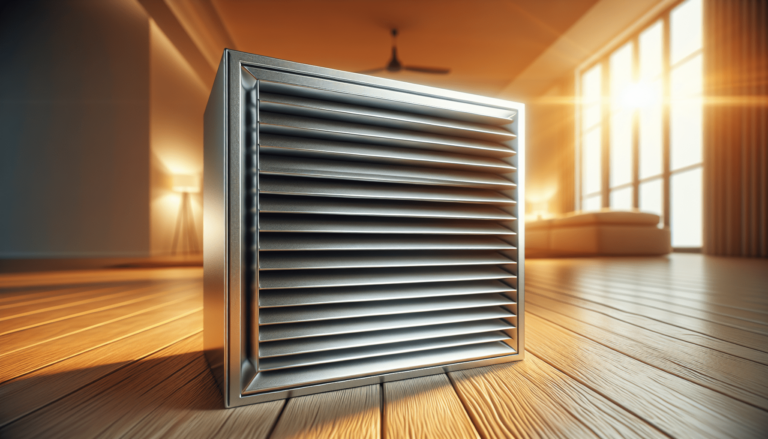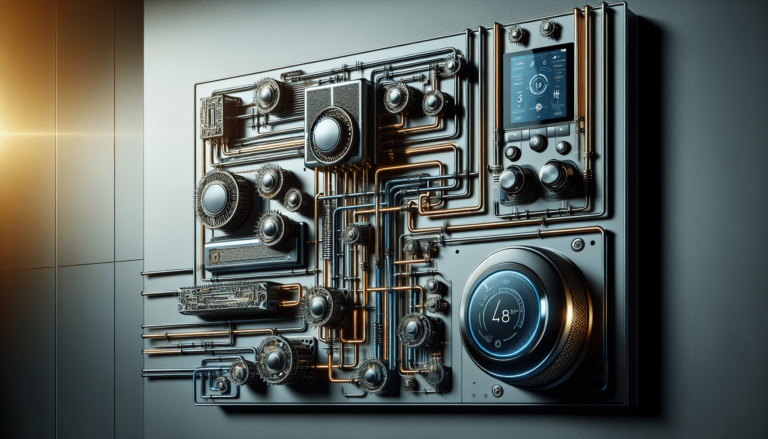

HVAC Services
Get Professional Repairs From The Area's Trusted HVAC Technicians. Ask About Our Services! We Offer Professional Heating & Cooling System Repairs And Guarantee Long-Lasting Results.
Got Question? Call us: (850) 678-2665Financing
Common HVAC Scams And How To Avoid Them
Uncover the tricks of shady HVAC technicians with humor and wit. Learn to spot scams and protect your home from unnecessary costs while staying cool or cozy.

Have you ever found yourself scratching your head, wondering if you’ve been swindled by an HVAC technician? You’re not alone. Many homeowners feel confused when it comes to understanding what’s happening under the hood (or, rather, in the vents) of their heating and cooling systems. Navigating HVAC maintenance and repairs can sometimes feel like deciphering a secret code, with shady operators ready to take advantage of any knowledge gap. While you may not be tearfully recalling a childhood memory as David Sedaris might when handling the thermostat, you’re probably interested in learning how to avoid those pesky scams.
Understanding HVAC Basics
Before diving into the scams themselves, let’s break down what HVAC stands for. HVAC is an acronym for Heating, Ventilation, and Air Conditioning. These systems maintain comfort in both residential and commercial spaces. Whether it’s the warmth you crave in the winter or a cool breeze in the summer, HVAC systems keep your environment exactly how you want it. Knowing the basics empowers you to make smarter decisions about repairs and replacements.
Why HVAC Systems Are Important
HVAC systems impact your quality of life. They regulate temperature, ensure proper ventilation, and maintain indoor air quality. Without them, your home could become unbearably hot in the summer or freezing in the winter. Plus, a well-functioning system can lead to energy efficiency and cost savings over time. Knowing what makes your HVAC tick puts you in a better position to sniff out any fishy business.
Key Components of an HVAC System
Here’s a quick overview of the essential parts:
-
Furnace: Provides heat using fuel or electricity.
-
Air Conditioner: Cools the air inside a building.
-
Ductwork: Circulates air throughout a building.
-
Thermostat: Controls the temperature settings.
-
Heat Pump: Transfers heat from one area to another.
Understanding these components helps you ask the right questions and identify when something seems off. Keep this info close; it’s your first line of defense against potential fraud.
Common HVAC Scams
HVAC scammers are crafty, finding creative ways to charge you for unnecessary repairs or replacements. Let’s take a closer look at some typical shady practices and how you can steer clear of them.
Upfront Payment Demands
Some technicians might demand full payment before any work begins. Trustworthy businesses might ask for a deposit, but any demand for the full amount upfront should raise a red flag. Quality companies believe in establishing rapport and delivering services before expecting full compensation.
How to Avoid It
Ask for a detailed written estimate and payment schedule before allowing any work to start. A company that refuses is a company to avoid.
Unnecessary Parts Replacement
Imagine you bring your car to a mechanic for a minor squeak, and they insist on rebuilding the engine. Similarly, some technicians persuade homeowners that entire components need replacing when a simple fix would suffice.
How to Avoid It
Always seek a second opinion. A reputable technician will explain why a part needs replacement using simple language. If they are dodgy or evasive, you may want to consult another service.
High-Priced Refrigerant Refills
Refrigerant is the substance that helps your air conditioner cool air. Dishonest technicians might claim you’re low on refrigerant more often than what’s typical, hiking up charges excessively.
How to Avoid It
Ask about specific refrigerant levels and politely request documentation. Price check common refrigerant types online to gauge if the quoted price is fair.
Unwarranted Maintenance Contracts
Some companies push long-term maintenance contracts without substantial merit, locking you into unnecessary services and fees.
How to Avoid It
Research before agreeing to any maintenance contracts. Compare what the contract offers against independent one-off services. Trusted companies focus on value and sustainable service, not squeezing you like an HVAC-sized lemon.
Misleading Energy Savings Claims
Technicians sometimes promote upgrades claiming unrealistic energy savings, preying on your desire to reduce utility costs.
How to Avoid It
Check third-party sources, like consumer reports or trusted reviews, about claimed upgrades. A credible company provides honest insights backed by data, not sugar-coated promises.

Choosing a Reliable HVAC Service
Once you know what to watch for, identifying reliable service providers becomes key. Here’s how to find an HVAC service that puts customer satisfaction first.
Check for Certifications and Licenses
Legitimate companies possess necessary licenses and certifications, showing they adhere to industry standards. In Florida, for example, they need general liability insurance and Worker’s Compensation, alongside having skilled technicians on staff.
Reliable HVAC Provider Example
Tempacure Heating and Air Conditioning is a licensed service provider you can trust, operating in Niceville, FL. They offer dependable HVAC solutions, should you find yourself in need.
Read Reviews and Testimonials
Hearing from past customers provides insight into a company’s integrity. Look for specific examples where people had positive customer service interactions.
Strategies for Research
- Read online reviews on multiple sites.
- Ask your neighbors or friends for recommendations.
- Search for any unresolved complaints with local consumer protection agencies.
Ask Detailed Questions
During initial consultations or calls, asking specific questions reflects your diligence and interest in professional reliability.
Example Questions to Ask
- Do you have required licenses and insurance?
- Can you provide references or customer testimonials?
- What does your warranty cover, and for how long?
Getting the Best HVAC Deals
A great deal doesn’t mean choosing the cheapest option. Instead, it’s about combining cost-effectiveness with quality service. Let’s explore practical tips for getting your money’s worth.
Request Multiple Quotes
Avoid one-size-fits-all quotes by comparing estimates from various companies. This helps gauge industry standard pricing.
Requesting Quotes Effectively
- Communicate your requirements clearly.
- Ask for a breakdown of costs in writing.
Inquire About Rebates and Discounts
Some manufacturers offer rebates on units or services. Companies might also run promotions during off-peak seasons.
How It Works
- Stay informed through newsletters or company websites.
- Ask directly if they offer seasonal discounts.
Schedule Regular Maintenance
Periodic check-ups extend your system’s life and ensure it runs efficiently.
Benefit of Scheduling Regular Maintenance
- Prevents costly emergencies.
- Leads to sustained savings over time.

Conclusion
Being aware of common HVAC scams empowers you against them. By understanding your system’s basic functions and components, you develop a protective barrier against exploitation. Choosing reliable services and securing the best deals ensure you get the comfort you deserve without the additional burden of doubt or guilt. For residents in Niceville, FL, Tempacure Heating and Air Conditioning stands ready to offer trustworthy service. They navigate the fine line between efficiency and economy. The next time something seems off with your system, you’ll be equipped to handle it smarter and wiser.
For trusted guidance or services, contact Tempacure at (850) 678-2665 or visit Tempacure Heating and Air Conditioning.







